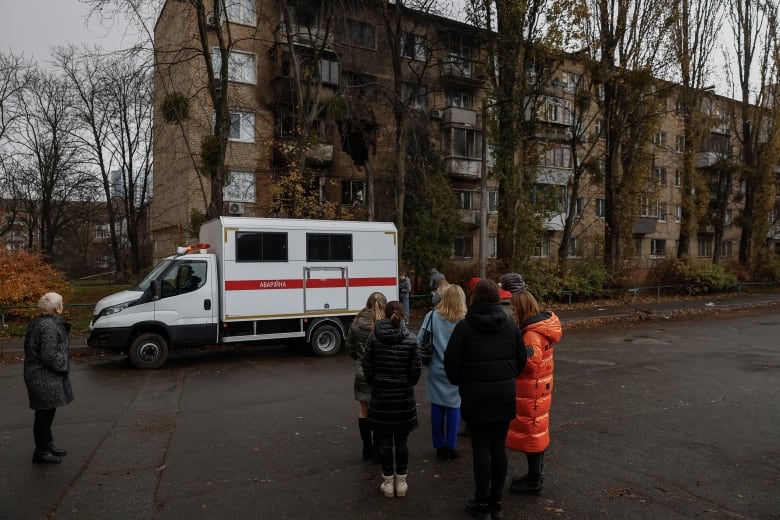
NATO ambassadors held an emergency meeting on Wednesday to discuss a missile that hit Poland close to the Ukrainian border and killed two people, with at least two alliance members calling for steps to strengthen air defence on the military alliance’s eastern wing.
After the missile that landed on a grains facility in Poland on Tuesday initially raised global alarm that the Ukraine war could spill into neighbouring countries, U.S. President Joe Biden said it was probably not fired from Russia.
In the early hours of Wednesday, Poland said it would likely invoke NATO’s Article 4, which is a formal call for consultations among allies in the face of a security threat. It was unclear whether that would still be the case, after a source said Biden told G7 and NATO partners that the missile blast was caused by a Ukrainian air defence missile.
The emergency NATO ambassadors’ meeting was in any case likely to discuss air defence, Slovak Prime Minister Eduard Heger said.
“It is natural that there will likely be a request on the table to strengthen the airspace of countries on the border,” he said.
Lithuanian President Gitanas Nauseda said NATO should swiftly deploy more air defences on the Polish-Ukrainian border and the rest of the alliance’s eastern flank.
“I hope by next year’s NATO summit in Vilnius we will be able to make progress, as the situation confirms it is the right decision and needs swift implementation,” Nauseda said.
Ground-based air defence systems such as Raytheon’s Patriot units are in short supply in many Western nations, which were reluctant to invest too much money in military capabilities like these after the end of the Cold War.
Alliance has collective defence pledge
The Brussels gathering was chaired by Secretary General Jens Stoltenberg, who was due to hold a news conference later in the day.
If it were to be determined that Moscow was to blame for the blast, it could trigger NATO’s principle of collective defence known as Article 5, in which an attack on one of the Western alliance’s members is deemed an attack on all, starting deliberations on a potential military response.
The Article 4 could be an intermediate step, providing for consultations on what to do next.
The explosion near the Ukrainian border came as Russia unleashed a wave of missiles targeting Ukrainian energy infrastructure, attacks that Kyiv said were the heaviest in nearly nine months of war.
Russia denies responsibility
Russia on Wednesday attributed the damage to a Ukrainian air defence missile, and that Russian strikes in Ukraine had been no closer than 35 kilometres from the Polish border.
“The photos published in the evening of Nov. 15 in Poland of the wreckage found in the village of Przewodow are unequivocally identified by Russian defence industry specialists as elements of an anti-aircraft guided missile of the S-300 air defence system of the Ukrainian air force,” the Russian defence ministry said in a statement.
It was not possible to independently verify the images or the identification.
The Kremlin on Wednesday criticized how some Western leaders had responded to the incident.
Kremlin spokesperson Dmitry Peskov told reporters Russia had nothing to do with the blast, and said a number of countries had made “baseless statements” about Russia’s involvement.
Ukraine works to restore electricity after missile barrage
In Ukraine on Tuesday, Russia pounded cities and energy facilities, killing at least one person and causing widespread power outages in what Kyiv said was the heaviest wave of missile strikes in nearly nine months of war.
“As a result of the strikes, automation today disabled several nuclear units at two stations — these are calculated consequences, and the enemy knew exactly what he was doing,” Ukraine President Volodymyr Zelenskyy said in his nightly video address.

Zelenskyy did not say which power plants were affected, but said that strikes hit the capital Kyiv, Lviv, Rivne and Volyn in the west, Kharkiv in the northeast, Kryvyi Rih and Poltava in the centre, Odesa and Mikolaiv in the south and Zhytomyr in the north.
Power was fully restored on Wednesday in seven Ukrainian regions, including in Kyiv. Work to restore electricity was also underway in seven other regions, said Kyrylo Tymoshenko, deputy head of Ukraine’s presidential administration.
He wrote on the Telegram messaging app that emergency cut-offs were still possible, and national grid operator Ukrenergo said it was implementing planned outages across the entire country as repair work continued “around the clock.”
The onset of winter, and much colder temperatures, has increased concerns about the stability of the heating supply, but Tymoshenko said officials were not considering evacuating cities following the missile strikes.
Pope Francis condemned on Wednesday the latest wave of missile attacks on Ukraine, calling for a ceasefire to avert the risk of escalation of the conflict.
“I learned with pain and concern of a fresh and even fiercer missile attack on Ukraine, which caused deaths and damage to much civilian infrastructure,” Francis said in Italian at his general audience in St. Peter’s Square.
A few minutes later, in other comments on Ukraine, he said, “We can pray for Ukraine saying, if you will, ‘Hurry up, Lord.'”